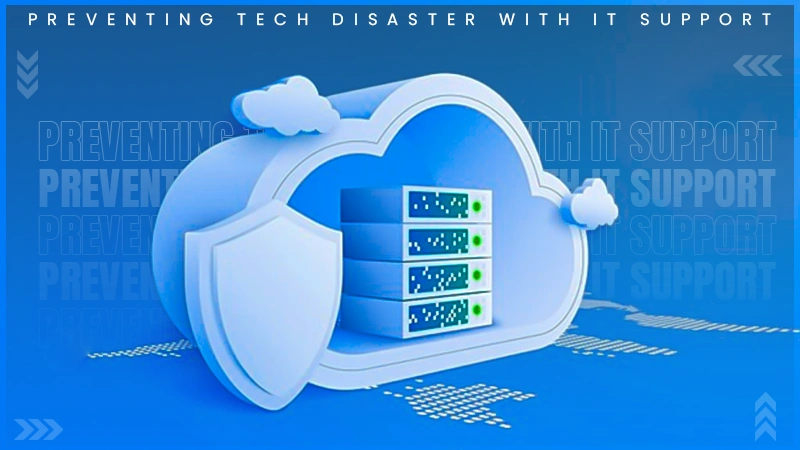
Technology indicates progress, and businesses need IT support to manage and maintain their functions. While all personal and professional areas integrate some type of automation, there is no substitute for human engineering.
Tech assistants innovate products and services, research and analyze data regularly, prevent cyberattacks, and troubleshoot hardware and software issues. It’s significant to choose the right IT support provider with expertise to handle small and large network systems.
They are the backbone of an organization saving people from dam failures, transportation accidents, flight mismanagement, and more. Let’s deep dive into their role, benefits, and effective strategies they apply to improve productivity and scalability.
Choosing the Right IT Support Provider
Your enterprise requires a robust networking and management system to perform consistently. In a small or large organization, it’s not just about a simple computer fix but checking the backup and recovery solutions, cloud services, and even software development.
Therefore, the right IT support provider such as Is-t.net offers expansive tech support for various industries. The other requirements that businesses search for when choosing an experienced tech service are:
- Aligning business needs with suitable network systems
- Experience in managing large data securely
- Knowledge of advanced and updated preventive measures
- Adaptable with good customer support service
- Offer quick resolutions and complete troubleshooting solutions
Key Benefits of IT Support
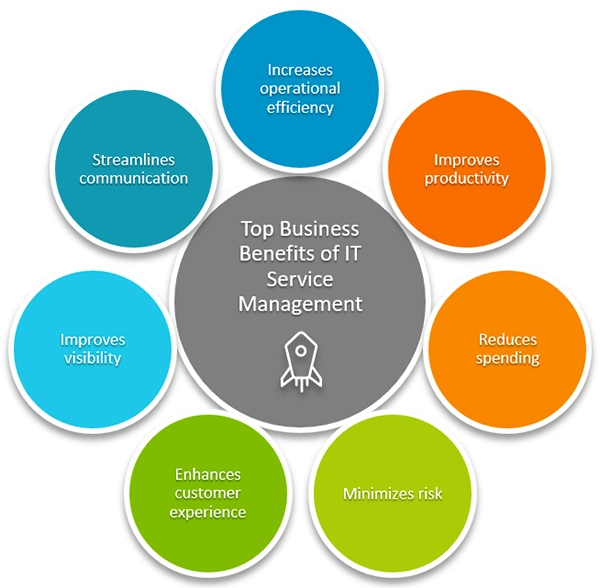
The benefits of having third-party or in-house IT support are multiple, as they manage the entire interconnected networks and implement important infrastructure solutions. Overall, a team of IT experts helps a company achieve its goals by improving the following key areas:
Increased Productivity
A slight delay or any tech issue makes a big difference, impacting the entire organization’s output. The technicians work constantly to maintain seamless operations throughout all processes.
When all machines function at full capacity, it increases overall productivity, the business teams can focus on more relevant tasks, and make informed decisions. It also indicates that a brand is invested in maintaining security and attracting high-profile stakeholders.
Cost Efficiency
Having an in-house IT team is the biggest asset of a company. However, hiring a third party or outsourcing tech support also creates a more diverse and manageable business. It reduces the cost of hiring, training, and maintaining another process. It’s a well-known strategy adopted worldwide with management and technical advantages.
THINGS TO CONSIDER
84% of enterprises describe their IT infrastructure as “multi-cloud”
Proactive Approach
The vast world of digitization is exposed to malware, with many preventive measures necessary to be implemented urgently. According to the latest Global Risk Report, the IoT cyberattacks alone are expected to double by 2025.
This report indicates that selecting an IT support service provider with a proactive approach to detecting dangerous threats before any virus infiltrates the systems. It creates a secure coverage of all networks of all management and transactional data.
Scalability
To improve the overall functions of a company needs increased outputs. IT support is the fuel that helps a brand with scalability to achieve all business goals. Adaptability is an important factor as an organization’s needs modify according to client’s demands. By strengthening the machines, tech experts ensure that no technical issues are hindering the success of an enterprise.
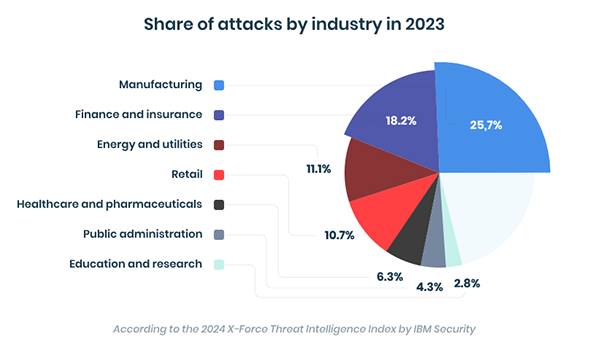
STATISTICS
The graph shows the industries most affected by cyberattacks in 2023.
Common Types of IT Disasters
Many IT issues can result in mismanagement and pose a serious risk to organizations. They can be as simple as outdated equipment that refuses to function properly or to accidental deletion of files. For every tech disaster, companies rely on IT support. Here are the most common types of malfunctions that technicians try to prevent regularly:
Hardware Failures
It is a complex process to maintain and prevent hardware failures. It consists of installing and updating firewalls, integrating antivirus solutions, and performing penetration testing. These are relevant for strict data security and seamless functioning of all processes.
It could be due to overheating of machines, hard disk failure, aging hardware, transmission issues, etc. With the right tech assistance, companies can troubleshoot any technical disaster quickly and maintain all systems.
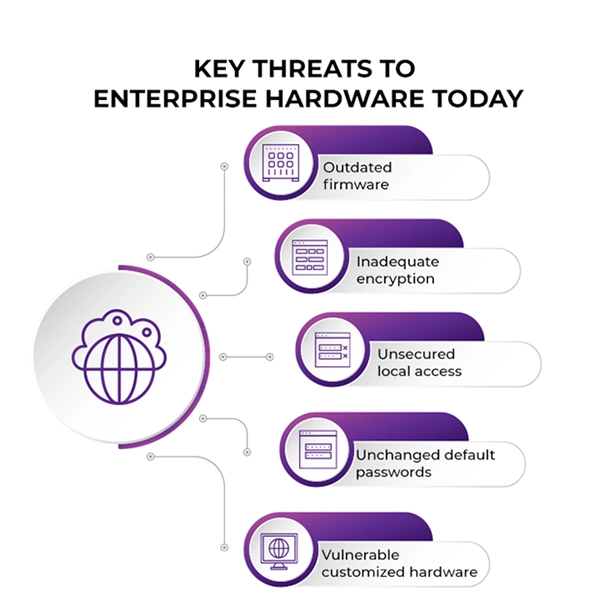
Cyberattacks
From DOS attacks, phishing, identity theft, code injection, and supply chain attacks, there’s a lot that an IT expert has to safeguard for a company’s system. It is an increasing worry for all industries with our continuous dependence on computers, automation, and cloud services. They deploy firewalls that are the first line of defense against cyberattacks.
It needs constant monitoring of all processes, especially when huge business data is involved. They also assist in creating bots that block unauthorized access to all the enterprise networks.
Human Error
Automating repetitive tasks has been adopted rapidly to avoid frequent human errors. However, the experience of managing processes is also significant and can only be provided by experienced professionals.
Therefore, companies invest in regular training and education of employees to create a collaborative system between machines and humans. They work together to scale a business by speeding up processes and innovating strategies to handle all types of work.
Strategies for Effective IT Support
After reviewing and monitoring all systems, it’s relevant for an IT expert to devise a plan to counter any tech issues. Of course, integrating strong software is of primary importance, but apart from this, here are the key functions that require effective strategies for consistent machine performance.
Regular Maintenance and Monitoring
The first step is always to evaluate the current performance by categorizing systems and applications. This provides a detailed report of regular checks that are required to maintain speed and accuracy.
Along with it, monitoring all networks daily, weekly, and timely upgrading systems is necessary. In this way, an IT expert or a team stays informed and proactive about any potential tech issues.
Disaster Recovery Planning
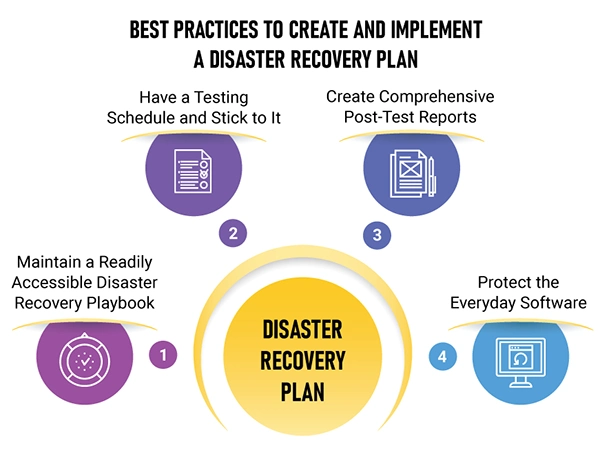
Once the system and the business requirements are understood and aligned, preparing a disaster recovery plan becomes imperative. It involves taking steps to minimize downtime, protect data integrity, assess threats, and establish recovery objectives.
Moreover, developing a straightforward communication plan helps managers stay updated with any recent changes that may impact their work. The IT support then takes the responsibility of conducting testing and preparing reports to strengthen the centralized servers.
Employee Education
A trained staff in basic technical issues creates a self-reliant company. It not only boosts employee morale with increased trust in the company they are working for. It also enhances overall productivity because all processes are working efficiently. Moreover, it fosters a collaborative environment, especially with a remote worker, improving the security of company data.
Preparing for Tech Disasters
Technology can be a boon for any business, but hidden issues impact the company’s output directly. The proactive IT solutions prepare for any future tech disasters like cyberattacks, to secure all on-site and remote processes by implementing the following methods:
- Automate repetitive tasks that may be frequently delayed due to human errors.
- Use data analytics to assess risks and create a report of all business functions.
- Implement workflow management to streamline processes and improve efficiency.
- Invest in cloud-based solutions with large storage capacity for diverse systems.
- Stay updated with technology trends, especially advanced software, for better and more effective security measures.

The Future of IT Support
As more businesses and industries depend on digitization, the support of IT experts is going to increase tremendously in the future. Now, it seems that the progress and demand for IoT are very high, but we cannot ignore the looming threats of cyberattacks.
When all processes are interconnected by a centralized server, it impacts the business output and employee productivity. It is necessary to understand the importance of an in-house tech team, or it is best to hire experienced third-party IT support to keep the business running smoothly. The future of all industries is in the hands of a strong technical team who can provide training to employees and create effective strategies for business success and growth.